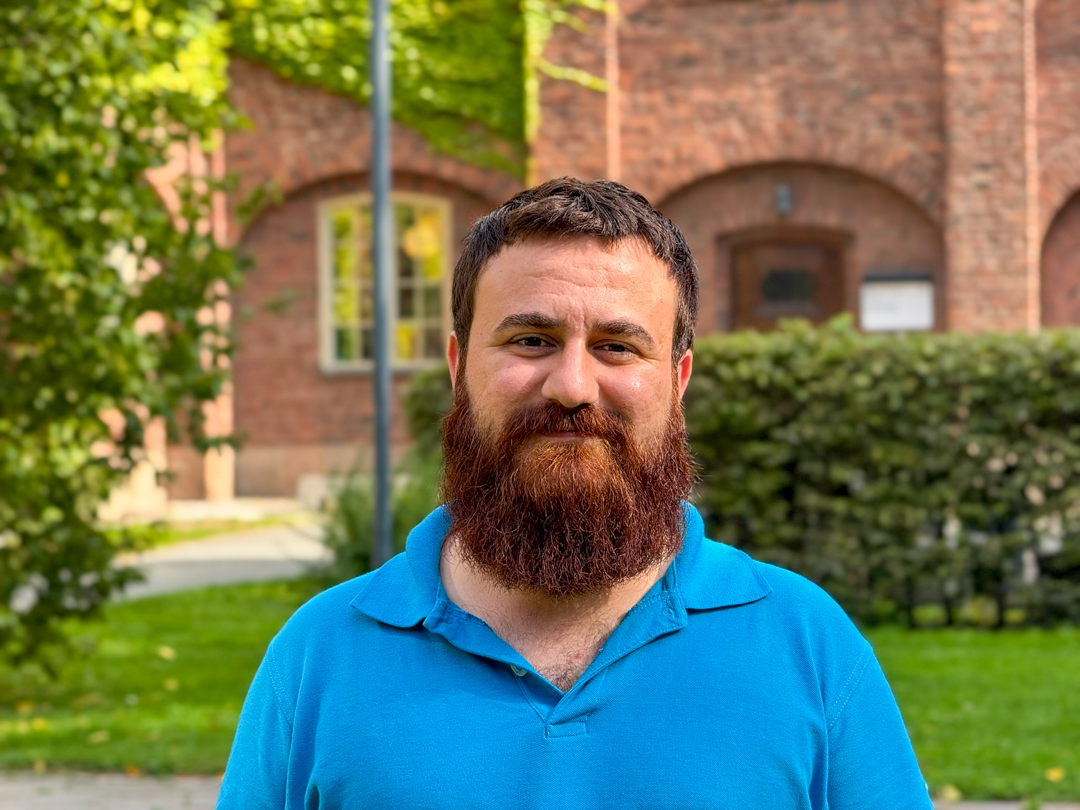Azar
Azar is from Azerbaijan and is in his second year of the Sustainable Production Development master’s programme at KTH. He has a background in Information Technology and completed a previous master’s degree in Germany. Before coming to KTH, he worked in roles like data analyst and data engineer, and now he’s focusing on how to apply data-driven thinking to sustainability challenges in industry. Outside of studies, Azar enjoys watching sitcoms, reading, listening to music, and trying out new vegetarian recipes. He also has an interest in art and likes painting whenever he gets the chance.

Why did you choose this master’s programme at KTH?
My interest in sustainability started during my first master’s in Germany, where I got involved in a couple of related projects. That experience really sparked something for me, and I knew I wanted to explore this area more seriously. I didn’t want to completely shift gears, though. I was hoping to learn something new while still making use of my background in IT and data. This programme felt like a natural step forward. It offered the chance to dive deeper into sustainability in a way that still made space for the skills I had already built. I also believe Sweden is one of the best places to study sustainability, so this program at KTH quickly became my first choice.
What are the best aspects of your programme?
What I really like about the programme is that it mixes theory with hands-on learning. We get to work on real projects and also visit companies, which makes everything feel more connected to the real world. There are also guest lectures from people working in the industry, which adds a lot of value. I like that the courses follow current trends in technology and innovation, and the way they make you look at sustainability from different perspectives, not just one fixed angle.
What are some of your favourite courses so far?
One of my favourites so far has been Digitalisation for Sustainable Production. It covers a mix of tools and technologies for working with data in production and logistics, but what really stood out to me was how it connected everything to real business and sustainability goals. It was not just about making something work technically. It was about understanding the value it brings and thinking through the impact. We worked in teams, and the project felt like building a real company, not just an assignment. That made it both challenging and really rewarding.
How would you describe your time at KTH so far?
KTH offers a lot. Personally, it has been exciting to see how many opportunities there are, from amazing researchers and ongoing projects to things like KTH Innovation. There is a bit of everything here, and honestly, sometimes it can feel overwhelming because so many paths seem interesting and worth exploring. But I see that as a privilege. The collaboration KTH has with industry leaders adds even more value to the experience. So far, it has been colourful, busy and full of learning.
What would you like to say to students thinking of choosing KTH for master’s studies?
I would say definitely keep in mind that this programme can be quite hands-on, and there will be challenges along the way. But that is part of the journey; the good thing is that you will have support around you when needed. You will not feel like you are doing it alone. Even if it is hard to come up with a fully detailed plan, it helps to have a rough idea and be open to exploring. KTH offers a lot outside the classroom, so make the most of those opportunities while you study. It is going to be an adventure. It will push you, inspire you, and it will feel real rather than something that just passes by.
